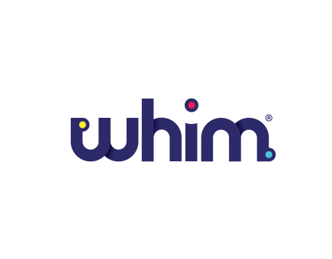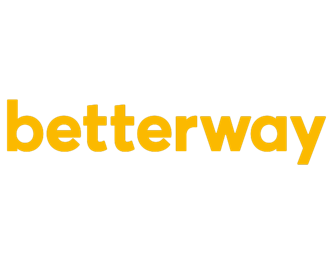123Fab #21
1 topic, 2 key figures, 3 startups to draw inspiration from

Is the Spotify of transport going to emerge?
The number of means of transport is increasing in large cities. In addition to traditional options such as private cars and public transport, new mobility operators are flourishing: shared bikes, electric scooters, carpooling, ride-hailing, free-floating electric cars, etc. As each operator provides its own application or platform, it has fragmented the reservation and ticketing platforms, paving the way for new multimodal platforms or aggregators that benefit all counterparts (users, mobility services providers, public transport companies, cities, etc.). This is how the expression “Mobility-as-a-Service” came about. According to MaaS Alliance, Mobility-as-as-a-Service puts users at the core of transport services, offering them tailor-made mobility solutions based on their individual needs.
MaaS platforms support commuters every step of their journey without them having to switch from one service provider to another. One of MaaS’s main strengths is that it offers several multimodal routes, optimized according to your preferences: the cheapest, the fastest, the fewest number of connections, the least crowded, etc. As the Mobility-as-a-Service sector is projected to reach $158 billion by 2024, it has aroused the interest of a wide range of mobility players (mobility operators, enablers, services companies, etc.). Large corporates are also investing in this market, as we saw recently with the acquisition of Moovit by Intel Corporation in May 2020 for around $900m. Moovit is known for its application that allows travelers to plan their trip by combining public transport, bikes and scooter services, carpooling and car sharing.
MaaS offers can be divided into 4 levels of integration:
- Route planning combining several modes of transport, personalized according to user preferences and real-time traffic
- Route planning + ticketing for multi-operator ticket distribution
- Route planning + ticketing + pricing consolidating the pricing systems of several operators into all-inclusive mobility packages and customer acquisition mechanisms
- Fully integrated: route planning + ticketing + pricing + incentives promoting green transport, off-peak travel and redistribution of city and employer subsidies
In this newsletter, we will focus on fully integrated solutions exclusively to examine whether it is a sustainable segment.
Among the startups reaching the 4th level of integration, Whim is the most advanced. It is an application that combines all existing transport services into a single subscription. There are 4 different categories of subscriptions, ranging from pay-as-you-go to an all-inclusive monthly subscription. Initially launched in Helsinki, Whim is now available in Birmingham, Antwerp, Vienna (not all options) and will soon be available in Greater Tokyo and Singapore. Zipster is almost its equivalent in Singapore, launched in 2020. Via Zipster users can plan their multimodal journeys, pay for public and private transport and get Grab vouchers.
Although these applications aim to become the Spotify of transport, are they feasible and sustainable? For Whim, becoming the Spotify of transport seems to be a myth for two major reasons:
- Firstly, its business model is hardly sustainable. As with streaming platforms (Spotify or Netflix), you can either pay-as-you-go or choose an unlimited subscription at €4.99/month, but unlike streaming platforms, the marginal costs for a journey are quite high (from €1 per 30-minute bike ride to €10 per 5km taxi ride). Moreover, all-inclusive pricing encourages users to choose modes of transport that are convenient but very costly to operate. In addition, the on-demand public transport coverage needs to be high to get users to sign up. However, it is a sustainable option when it covers fixed needs such as commuting trips or first- and last-mile connectivity.
- Another barrier to relevant MaaS offerings is the need for public transport data. Access to commuter data is essential for public and private players to understand how people travel, identify market gaps and adapt services and products accordingly. For instance, The New South Wales Government has made transport data publicly available to encourage innovation.
Although the market for fully integrated MaaS platforms is not yet mature, MaaS players can help cities achieve their goals, whether it is congestion, pollution, inclusion or resident well-being. In the same way, MaaS players need cities. Building a fully integrated MaaS offer requires continuous innovation, public-private partnerships, and support from the authorities (from integration into public infrastructures, to subsidies and incentives). In an ideal world, startups with the freedom to innovate and the flexibility to adapt can provide technological solutions to help transport authorities improve infrastructure and services.
In conclusion, optimal MaaS platforms do not yet exist and the Spotify for transport – i.e. MaaS by subscription – seems unlikely. Yet, it is a fast-growing market that involves an increasing number of players. The question of whether the driving force behind the initiative is private players or the state remains open.
2 Key Figures
106 MaaS startups
in the world registered by Crunchbase
Market size expected to reach $158bn by 2024
The global MaaS market size was valued at $24bn in 2019 and is expected to reach $158bn by 2024.
3 startups to draw inspiration from
This week, we identified three startups that we can draw inspiration from: Whim, Immense and Betterway.

Whim
Whim is an internationally awarded Finnish mobility application that allows you to book and pay for all your trips one trip at a time or with a convenient seasonal order. Whim has already made more than 16 million trips.

Immense
The Immense platform enables you to rapidly test the important strategic and operational decisions for global transportation in the digital world – taking away the risk of expensive assumptions and sunk costs.

Betterway
Betterway is the leading platform for enterprise mobility management. Like the transport refund, you can now set up the “Forfait mobilité durable”. It allows your employees to use their personal bicycles or to buy one, to use car-sharing or car-pooling solutions and even to use mobility with free access in the street.

